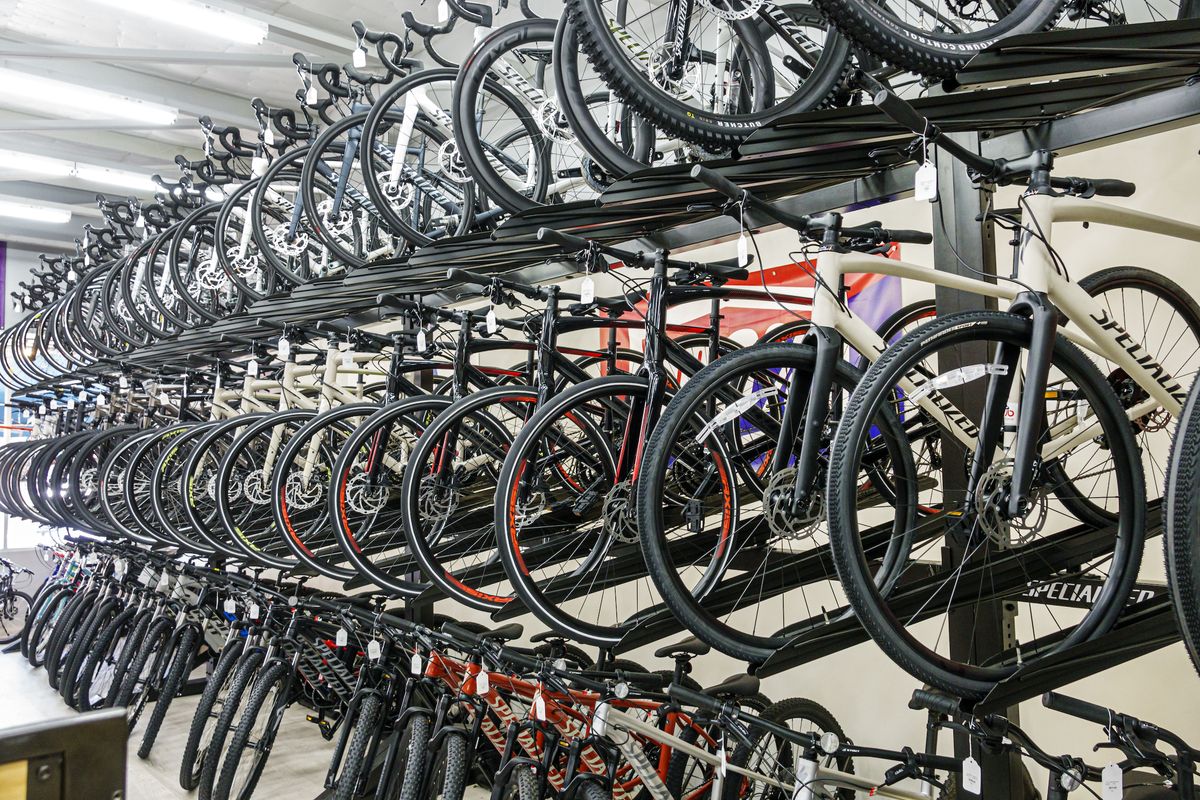
The bike industry survived to 2025 – what happens now?
Will we really see the bicycle industry's fortunes turn around this year?
'Survive till 25' is a mantra that has been tossed around in the bicycle retail industry a lot over the past 12 months – a three-word pep talk urging stoicism and suggesting better times were on the way.
Well, it's 2025 and if you're lucky you survived – what now? Nobody was expecting to push through the door marked 'exit' on December 31, 2024 and step into a high-margin, high-demand paradise that would solve everyone's woes in an instant.
But what about that glimmer in the darkness? Is it there?
It should be pointed out that many did not, in fact, survive till 25. There were multiple casualties in the past 12 months, both in the retail and wholesale sectors. Companies like i-ride, Orange bikes and Mercian Cycles all appointed administrators or went into liquidation, while major brands like Shimano, Rapha and Giant reported a fall in cycling profits.
Those in the industry who managed to see it through may already be aware that 'Survive till 25' is not a biking thing. It's a phrase that has been well used across a variety of industries from filmmaking to real estate, rather than being based on some piece of insider biking knowledge about future markets.
However, that light at the end of the tunnel is beginning to show, says Henry Silvester, owner of Silvester Brothers bike shop in Farnborough, with a steady stream of repairs and a relatively buoyant post-Christmas period.
The post-Covid surplus that has dogged the industry and been the source of many of its woes for the past two or three years has, in places, been ironed out, he says.
The latest race content, interviews, features, reviews and expert buying guides, direct to your inbox!
"Looking at some of the suppliers we deal with, the deals have now come to an end, pretty much," he told Cycling Weekly. "There isn't a lot of surplus stock about – certain models and certain disciplines, there's still a few. But definitely, we've noticed that when we've gone to reorder bikes that we've maybe sold through, looking for the deals again, they're not there – they've gone."
Mike Rice, CEO of London chain Balfe's Bikes, echoed Silvester's take on that overstock, saying: "For many, many suppliers, the stock seems to be now in a pretty healthy position. And in some instances, there's actually shortages of stock, probably where people brands just tried to reduce their stock very quickly, and the better selling items sold through quickly, ending up with some gaps."
Some areas were faring better than others though, with Rice pointing to an obvious pick-up in the 'enthusiast' sector (more than £1,500 / $1,800) is selling far less than planned for were electric bikes, he said – to the extent that a new surplus was being created in some cases.
Both Silvester and Rice confirmed that with the industry slowly righting itself, the likelihood was that consumers would be able to take advantage of fewer deals when shopping for a new bike. But, Rice said, it was an opportunity for suppliers and retailers to regain some of the ground it had lost – though not necessarily all of it.
"There are some very big deficits to be clawed back," he said. "So I think it will take some time. And I think it will require an increase in the market size – ie more people cycling – more new people coming back into cycling," he said.
How long can a cyclist go without buying a new bike? That is the question that Silvester predicted the industry would begin to see answered in due course, especially with the price of repairs not getting any cheaper
"I don't know whether or not people have just got to the point now where they've held off, say, for a year or two, and now they're just thinking, you know, I need a new bike," Silvester said. "And the repairs are costing more now, parts are still going up. So I think people are maybe coming to that conclusion that even though things are a bit tight still, they're happy to spend the money looking forward. They see that it's an investment."
On balance, things sound quietly optimistic for those who have survived till 2025. But very quietly. Neither Silvester nor Rice would be drawn on whether this would be the year where the cycle industry would start to see the sort of extensive comeback that would spell the end of sad stories about long-established businesses closing down or being sold off.
"I'd say there were some positive signs that the market is showing signs of improvement, but it's still exceptionally tough," Rice said. "There's still other headwinds to do with just the general cost of doing business."
He referenced the higher UK National Insurance contribution that comes into effect in April, as well as a rise in the Living wage. In the US, there will also be potential tariffs to wrangle with, which will make some imports considerably more expensive.
'We're not out of the woods yet,' seems to be the message. Perhaps, though, 2025 could be the year that the bicycle industry can begin to think about 'thrive' instead of 'survive'.